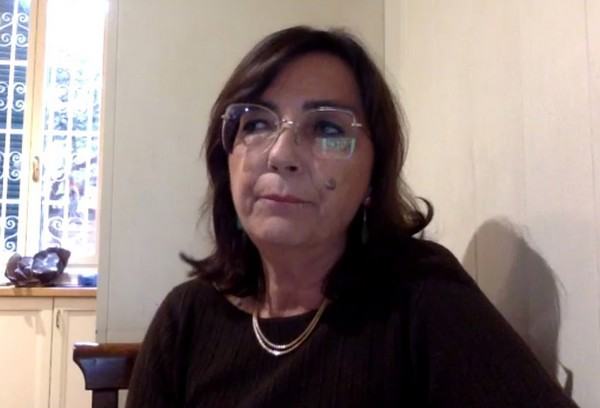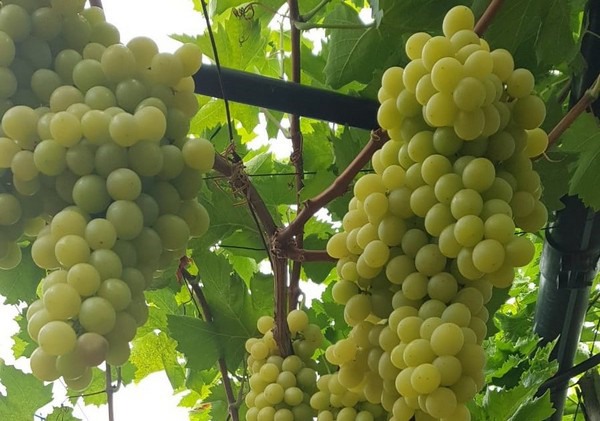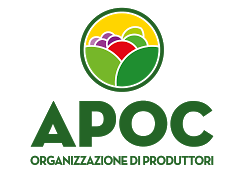"Semi d'Uva-Società x azione is a project open to anyone, but the research needs to be financed. I would like for seeded grapes to be added to the list of superfoods. We should go back to simple things, to what was considered good food already by our grandfathers and great-grandfathers. We should not give into the spasmodic quest for what is new - consumers look for food safety. Seeded table grapes can be eaten by those in need of special diets, such as cancer patients, for example," explained Teresa Diomede, CEO at Racemus, during a webinar on the "Semi d'Uva-Società x azione" project. The event discussed the project started already in September 2019 and favoring scientific research linked to good nutrition through the consumption of seeded table grapes.

Teresa Diomede, Racemus CEO
The study, conducted by researchers Carla Minoia and Antonella Daniele from IRCSS in Bari, is financed by the APOC PO with the support of Associazione nazionale Le Donne dell'Ortofrutta. It is promoted by the "PH8 La salute è contagiosa" Association at the oncohematology ward at Istituto tumori di Bari. The results are also divulged by Fondazione FICO in Bologna.
Duccio Caccioni, from Fondazione Fico, stated that "if we consider a bunch of grapes growing on a tree, the evolution of the fruit is already in the seed. Seeds gather all nutritional substances. Nowadays we are looking for simple flavors - acidic, sugary, savory - but we are less and less aware of flavor hues, which in plants are created by secondary metabolism. I am talking about a series of molecules that characterize the flavor and give shape to the fruit, but also interrupt the hyperactivity of free radicals."

Duccio Caccioni from Fondazione Fico
"Table grapes is one of the many products we grow on approximately 1,900 hectares, with a turnover of over €40 million. Two years ago, we started supporting the project with a lot of enthusiasm and will continue to do so. I remember the event in Rutigliano as well as the one organized at Fruit Logistica 2020. Online events are tinged with sadness, but we try to adapt and the charisma of the people involved does not change," specified Rosario Ferrara, director coordinator of Op APOC.

Rosario Ferrara, director coordinator of Op APOC
"Semi d'Uva-Società x azione stems from the passion of women who needed to illustrate Italian grapes - especially seeded grapes - in an innovative way. In addition to promoting a product and explaining its properties, this initiative also has a social value. To promote fresh produce consumption, it is increasingly important to make people understand the value a product has for the territory, society and our health. People often talk about seedless grapes and it seems it is all consumers are looking for. But it is not true: in this case, it is essential to strengthen the identity of a product such as Italian grapes highlighting its peculiarities and nutritional values," explained Alessandra Ravaioli, president of Associazione nazionale Le Donne dell'Ortofrutta.

Alessandra Ravaioli, president of Associazione nazionale Le Donne dell'Ortofrutta
Alessandra Ravaioli also announced that the "Danile Bragantini" award ceremony, organized by Associazione Nazionale Le Donne dell'Ortofrutta to stimulate female innovation, will take place on June 18th in Bari.
Nick Difino from the "PH8 La salute è contagiosa" association discussed the importance of research also during times like these with Dr Guarini, director of the hematology ward at IRCSS in Bari.
 |
 |
Nick Difino from the "PH8 La salute è contagiosa" association and Dr Guarini, director of the hematology ward at IRCSS in Bari
Antonella Daniele from IRCSS in Bari analyzed the study conducted on the gut microbiome, which also assessed the benefit of some foods, especially table grapes and grape seeds, in restoring the bacterial flora altered by cancer, for example.
"Grapes is essentially made up of 70-85% water, 15-20% sugar, a few proteins, very few fats and has a high content of linoleic acid, fibers, calcium, iron, magnesium, phosphorous, copper as well as a good concentration of potassium. It also contains a minimum quantity of sodium, carotenoids, vitamin A, vitamins from group B, vitamin C and folic acid. A very important component in grapes is resveratrol, i.e. a non-flavonoid phenol contained in the skin with considerable beneficial properties for the organism. In addition to cellulose, starch, tannins, antioxidants, substances that protect the skin and mineral salts, seeds also contain a percentage of oil rich in linoleic acid."

Antonella Daniele, researcher at IRCSS in Bari
"Grapes has multiple nutritional properties: it stimulates the intestine; it is diuretic and detoxifying thanks to potassium; it helps prevent degenerative diseases such as cardiovascular ones; it is useful for anemic people thanks to its iron content and has an antiviral effect thanks to tannic acid and phenol," concluded Antonella Daniele.

For further information: APOC
APOC
Via R. Wagner K1 (P.co Arbostella)
84131 Salerno
+39 (0)89 331758
www.apocsalerno.it
